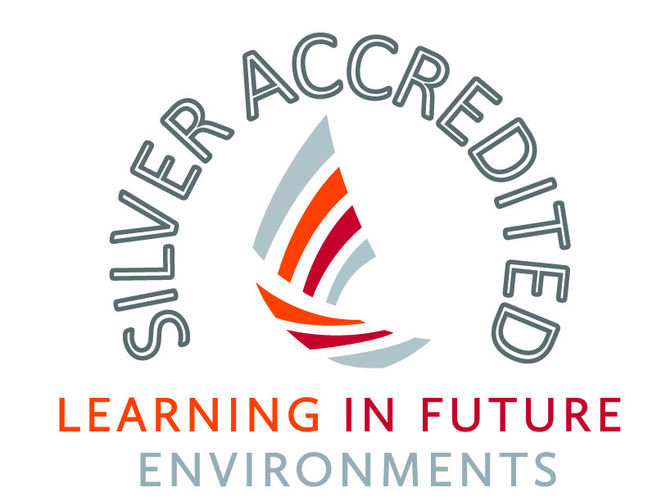Nottingham Trent University and Plymouth University are the first institut...
Nottingham Trent University and Plymouth University are the first institutions to gain Accreditation for sustainability performance in the LiFE Index
Nottingham Trent University and Plymouth University are the first institutions to have gained Accreditation in the Learning in Future Environments (LiFE) sustainability assessment tool, with both institutions setting a high standard of Silver.The LiFE Index is a radical new standard which helps colleges and universities step up to new expected levels of social, economic and environmental accountability. Students, employers and wider society are demanding more of their chosen university and the LiFE Index delivers this through managing, measuring, improving and promoting their social responsibility and sustainability performance. The Index provides institutions with a whole institution approach - no stone is left unturned, and covers Leadership and Governance; Learning, Teaching and Research; Partnership and Engagement and Estates and Operations.
Although the LiFE Index enables institutions to use self-assessment to monitor their own progress and performance, institutions can choose to go through the Assessment and Accreditation process with the LiFE Index. This allows institutions to receive external validation of the work they have been doing on sustainability and social responsibility and benefit from feedback from the external assessors to help the institution to continue to refine and develop their sustainability or social responsibility programme. It also allows them to benchmark performance against other institutions nationally and globally.
There are four levels to the Accreditation programme, Bronze, Silver, Gold or Platinum, which communicate activity and progress to internal and external stakeholders. The robust scoring methodology was developed in partnership with the Stockholm Environment Institute, supports the guiding principles of the LiFE Index and is both fair and challenging. We are committed to transparency of approach and want to be as clear as possible with participating institutions about the criteria they are being assessed against.
Professor Neil T Gorman, Vice-Chancellor of Nottingham Trent University says:
“NTU took part in the forerunner of the LiFE Index, Universities that Count in 2010. Wishing to build on this to continually improve and benchmark ourselves against the sector in the area of Corporate Social Responsibility, we undertook to commit to and support the LiFE Index in 2012. We found the framework for assessment to be a logical and practical tool which can help drive improvements across all operations of the University. Our particular interest is developing sustainability throughout our courses to support our strategic plan. The LiFE framework will enable us to build on our existing achievements. The accessibility and structure of the LiFE Index allows for transparency and co-operation across schools and departments to reach our sustainable, environmental and community objectives. Our Silver Accreditation will give us an excellent baseline to improve upon.”
Professor Wendy Purcell, Vice-Chancellor and Chief Executive of Plymouth University says:
“The LiFE Index is a comprehensive performance improvement system and it is great to see Plymouth University leading the sector with a Silver Accreditation. This is fantastic recognition for the way that we have embedded sustainability across our institution. We have done this through our teaching, our research and the way we operate as an organisation. We've set ourselves some bold targets, and will continue in our efforts to improve our performance, create sustainability-minded graduates, and through research, develop solutions for the challenges ahead."
Iain Patton, CEO of Environmental Association for Universities and Colleges (EAUC), who delivers the LiFE Index says “it is excellent to see these two institutions gaining the Silver Accreditation – this reflects the hard work and dedication to ensure that sustainability is truly embedded within their institutions. Both Nottingham Trent University and Plymouth University are pioneering in the education sector by taking sustainability seriously and measuring their performance. Education is being reinvented and we desperately need ‘turn-around’ leadership which is up to the challenge of delivering institutions and graduates which are fit for the economic, environmental and social complexity and challenges we now face. We are looking forward to helping other institutions to take their journey to Accreditation level and also these two institutions to progress to Gold and beyond.”
Sustainability assessment tools such as the LiFE Index are also designed to assist commitments of HESI, Higher Education Sustainability Initiative signatories, by improving their sustainability performance. It can also support complimentary Rio+20 initiatives such as the People's Sustainability Treaty on Higher Education. The EAUC is the coordinator for the Platform for Sustainability Performance in Education which is a global platform bringing together organisations which have created sustainability assessment tools designed to support universities and colleges around the world. The purpose of the Platform is to promote sustainability assessment in education. By coming together it is our goal that more universities and colleges learn about the value of sustainability assessment tools to improve the sustainability performance across the whole of their institution. The Platform was launched at the 27th Session of United Nations Environment Programme’s (UNEP) Governing Council in Nairobi, Kenya on the 20th February 2013 at a special Green Room Event led by UNEP including Environment Ministers, Education Sector leaders, Governmental and Non-Governmental advisers and representatives. The 27th Session of UNEP’s Governing Council is historic as it is UNEP’s first universal session, following the Rio+20 Summit last year, 40 years since UNEP was first established.
End
Notes to the Editor
Media contact: Fiona Goodwin, Head of Membership Services, Environmental Association for Universities and Colleges (EAUC) fgoodwin@eauc.org.uk, 01242 714321
Further information:
About the EAUC:
With a Membership of over 300 universities and colleges, the Environmental Association for Universities and Colleges (EAUC) is the sustainability champion for the UK tertiary education sector. The EAUC is a not for profit Member based charity run by Members for Members. We are financed by subscriptions and service generated revenue which funds our work of representing and promoting the interests of Members and the provision of support services to drive sustainability to the heart of tertiary education across the UK. For more information, visit www.eauc.org.uk.
About the LiFE Index:
The EAUC also delivers LiFE (Learning in Future Environments), a comprehensive performance improvement system developed specifically to help colleges and universities to manage, measure, improve and promote their social responsibility and sustainability performance. For more information on LiFE, visit www.thelifeindex.org.uk.
Higher Education Sustainability Initiative for Rio+20: https://www.uncsd2012.org/index.php?page=view&nr=341&type=12&menu=35
People's Sustainability Treaty on Higher Education – List of Signatories: https://insight.glos.ac.uk/sustainability/Education/Pages/People%27sSustainabilityTreatyonHigherEducation.aspx
Stockholm Environment Institute: https://www.sei-international.org/














